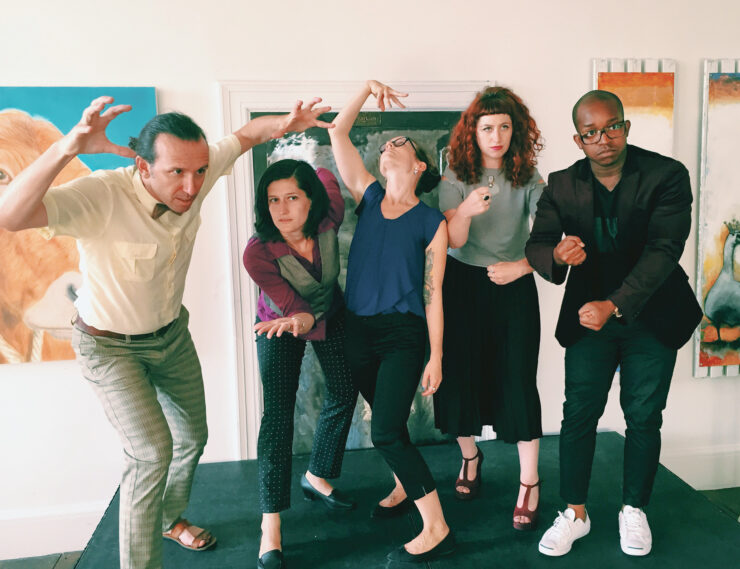Sequel to Antigone contains messages relevant for our time
Sophocles’ tragedy Antigone now has a sequel 2000 years later. Starring a cast of eight women, the University of Ottawa’s Department of Theatre is putting on a postmodern sequel rooted both in contemporary society and ancient Greece, with morals that are relevant to our own time.
The play, based on Antigone, is told from the perspective of Antigone’s sister Ismene, who in the original Theban plays is a passive observer to a lot of violence and death. The purpose of this modern retelling was to give Ismene more of a story. She is obedient to authority in Sophocles’ original, but is a stronger character in this remake.
“(Ismene) moves from being a kind of passive observer to her own agent,” said Emma Hickey, a fourth-year theatre student at the University of Ottawa.
The show’s overarching theme of justice isn’t necessarily Grecian either—the play captures universal themes that are very relevant today.
“Just because you didn’t do something in the moment doesn’t mean you can’t impact things in the future,” Hickey said.
The show also contains a small in-joke, though you’d have to watch it a couple of times to notice it. Most of the lines are improvised—the play has only three characters but eight actors—who swap their lines around or speak in unison. The character of Creon, for instance, is voiced by all the actors for most of the play.
“The lines, we improv’d who said what. It wasn’t like we got specific characters and said, ‘These are your lines,’” Hickey said. “The lines were improv’d, and over time it kind of solidifies who said what.”
Despite changes to theatre since days of the Ancient Greeks, we keep turning to their work for many reasons.
“Back then, (plays) were mostly used to convey (a) political message, so I think the point of theatre is to go where no one has gone before … to push those boundaries, and the Greek plays do that in an artistic way,” said Sophie McIntosh, a fourth-year theatre student.
Antigone might have been written in the 400s BCE, but that play, and its contemporary re-telling, has a lot to say about our current society.
“The show is about witnessing something, and with the political climate that’s happening everywhere, sometimes I feel like the show is about witnessing something and then taking an action to do something that you feel is right, whether or not it actually is,” said Z Chubb, a fifth-year theatre student. “I feel like that’s an important thing to see right now … to be able to see Ismene, who was originally so powerless, then do something that had a consequence.”
The avant-garde sensibilities of the play might at first turn some people off, but there are plenty of reasons people should see the performance. In addition to its highly relevant messages and themes, it is a unique theatre experience that combines chorus singing, dancing, set design, and script in a new and interesting way.
“Basically, it’s a very different kind of play, it’s not a traditional play where there’s a storyline or specific characters,” said Jasmine Massé, a fifth-year theatre student. “If they want to see a cool movement show with singing and cool lighting effects than they should come.”
Ismene runs from Oct. 31 to Nov. 4 at 8 p.m. at Academic Hall (135 Seraphin-Marion Private). Tickets are $5 for students at the door.






